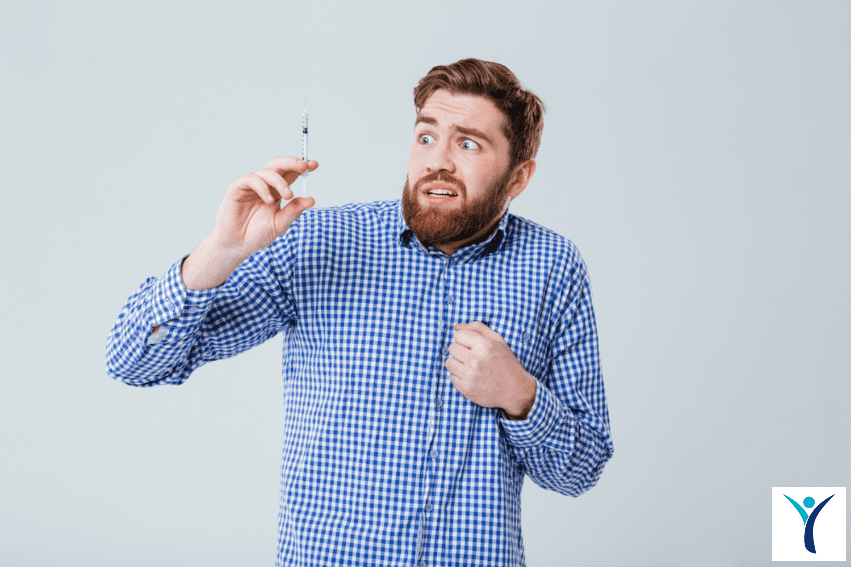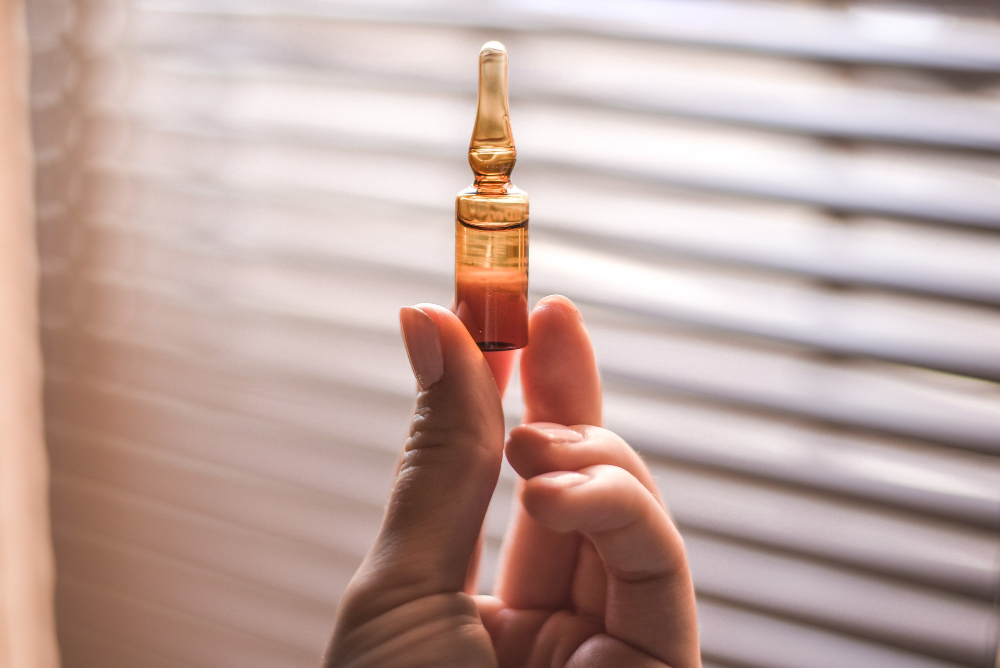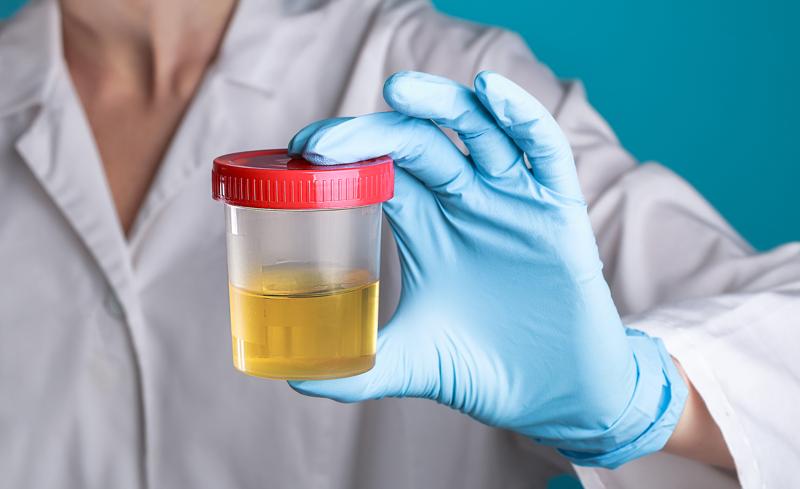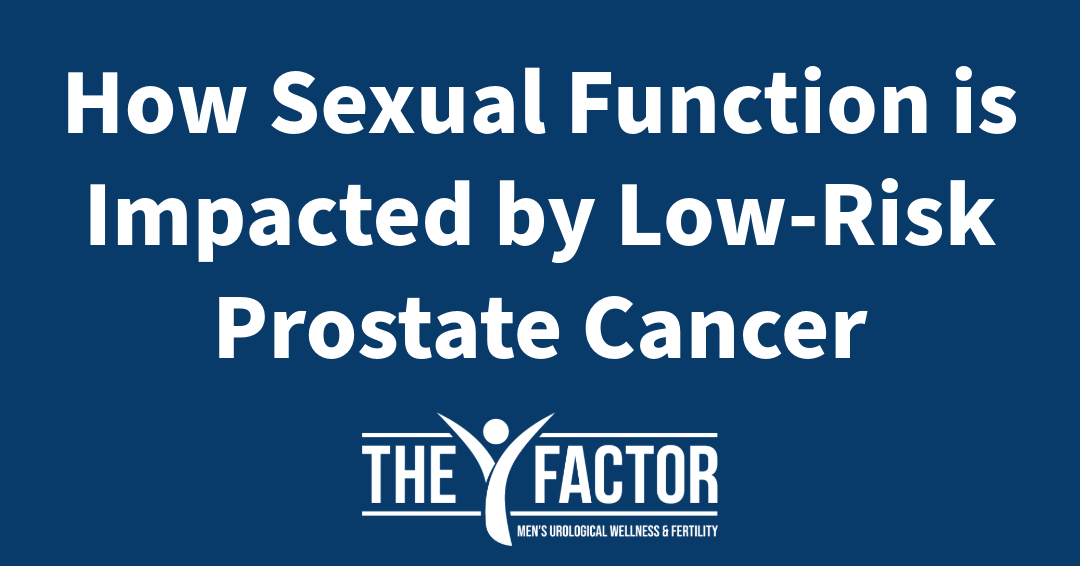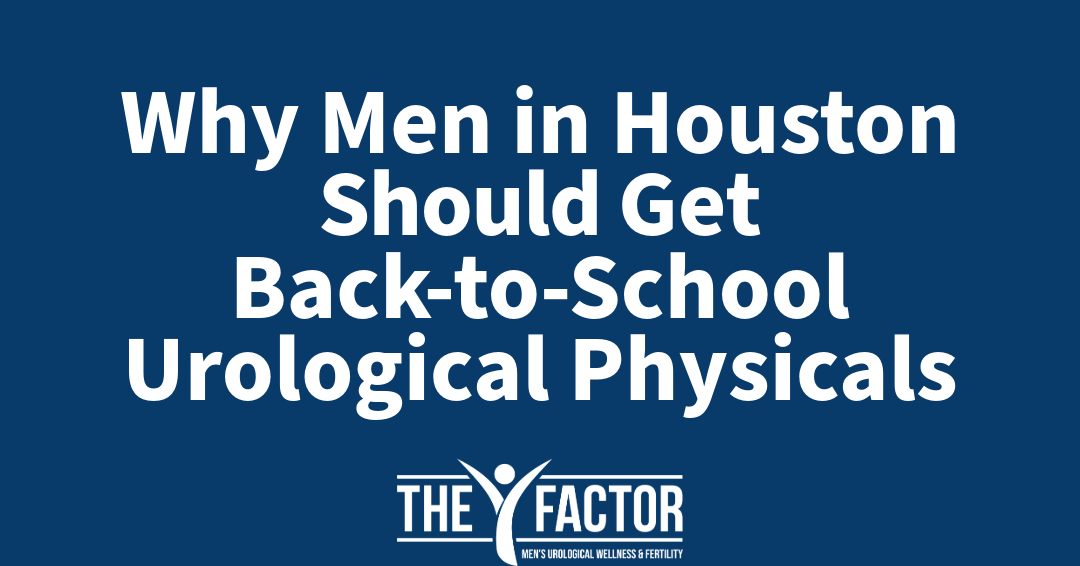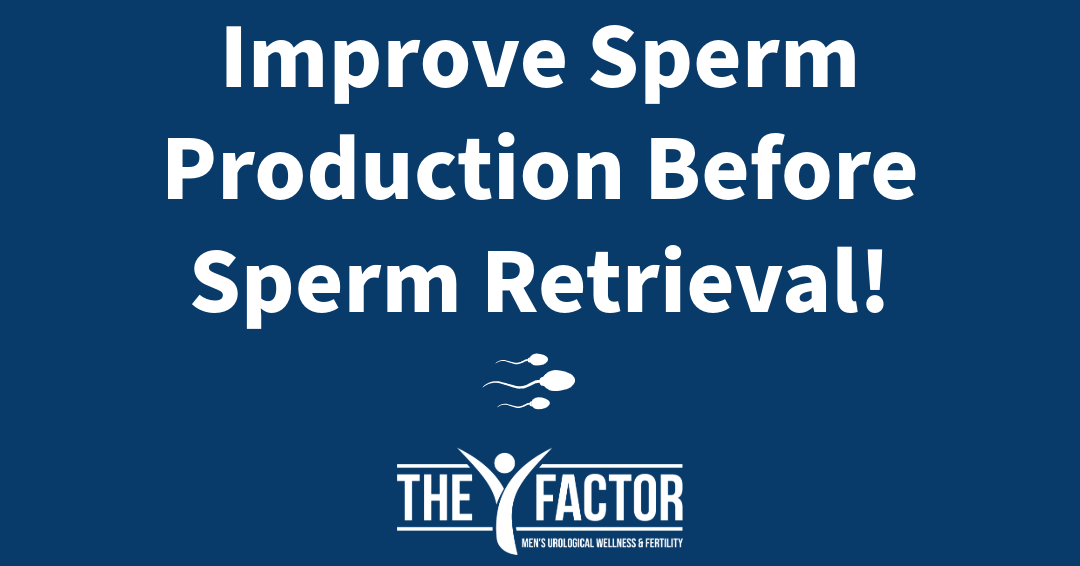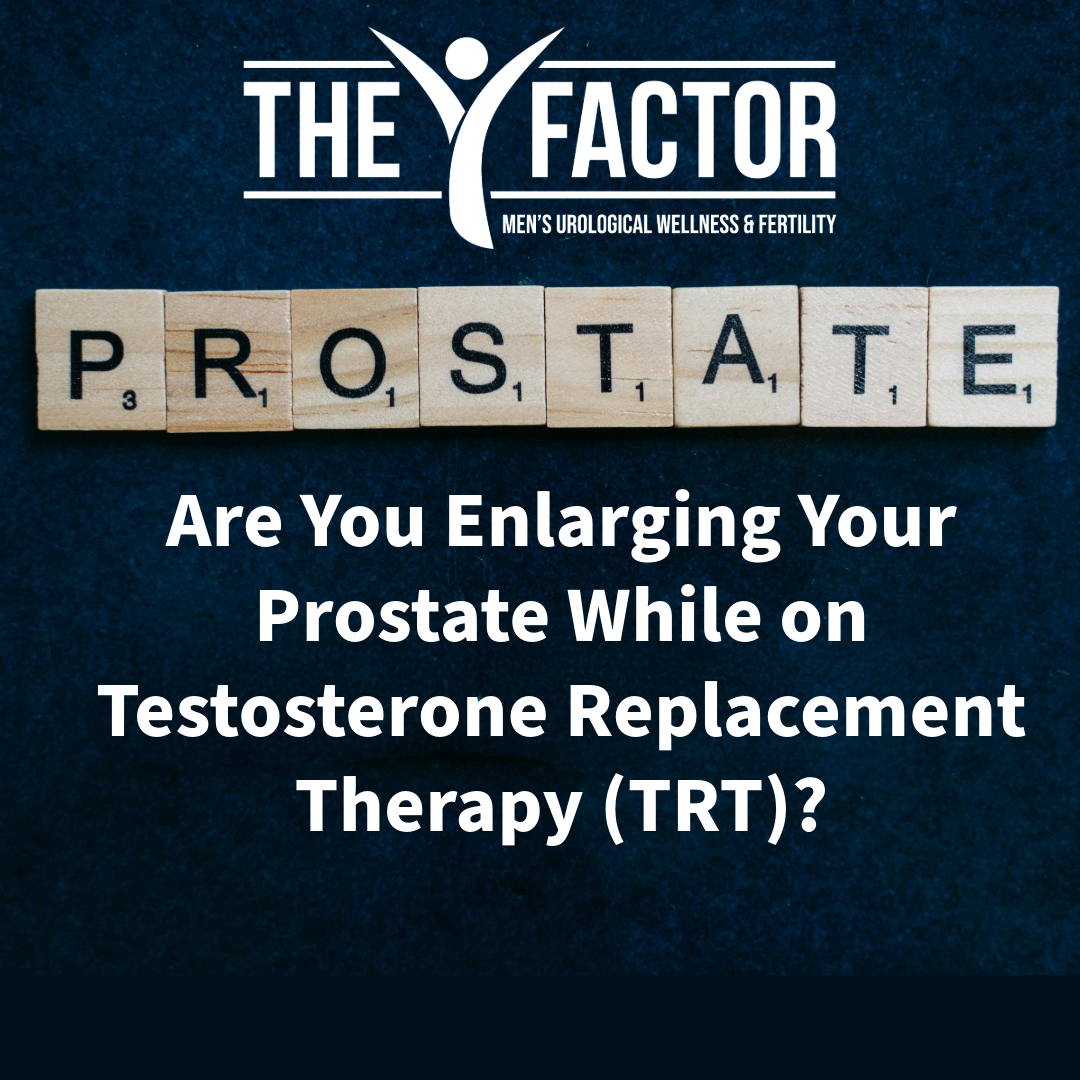The Y Factor’s Thorough Approach to Treating Low Testosterone
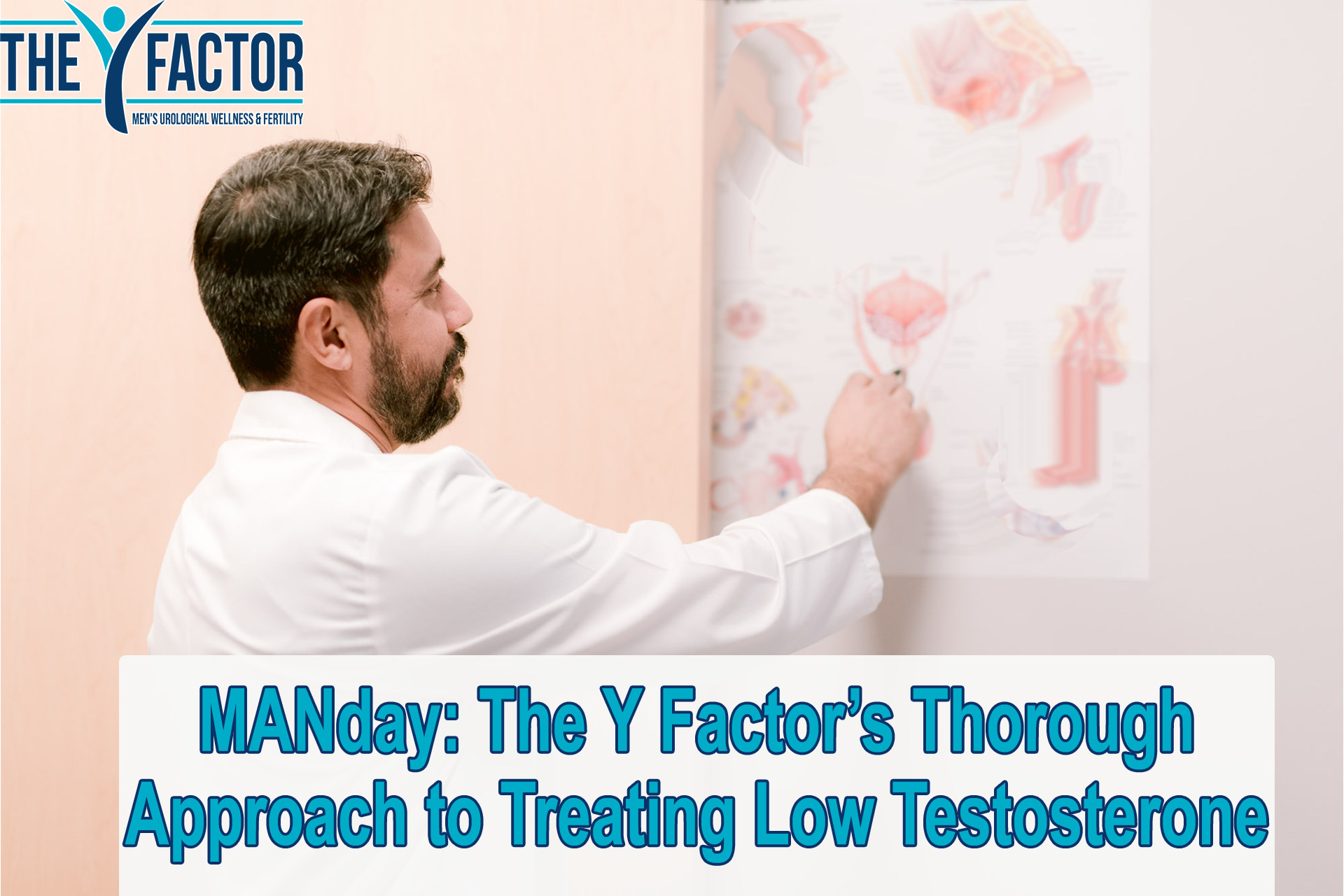
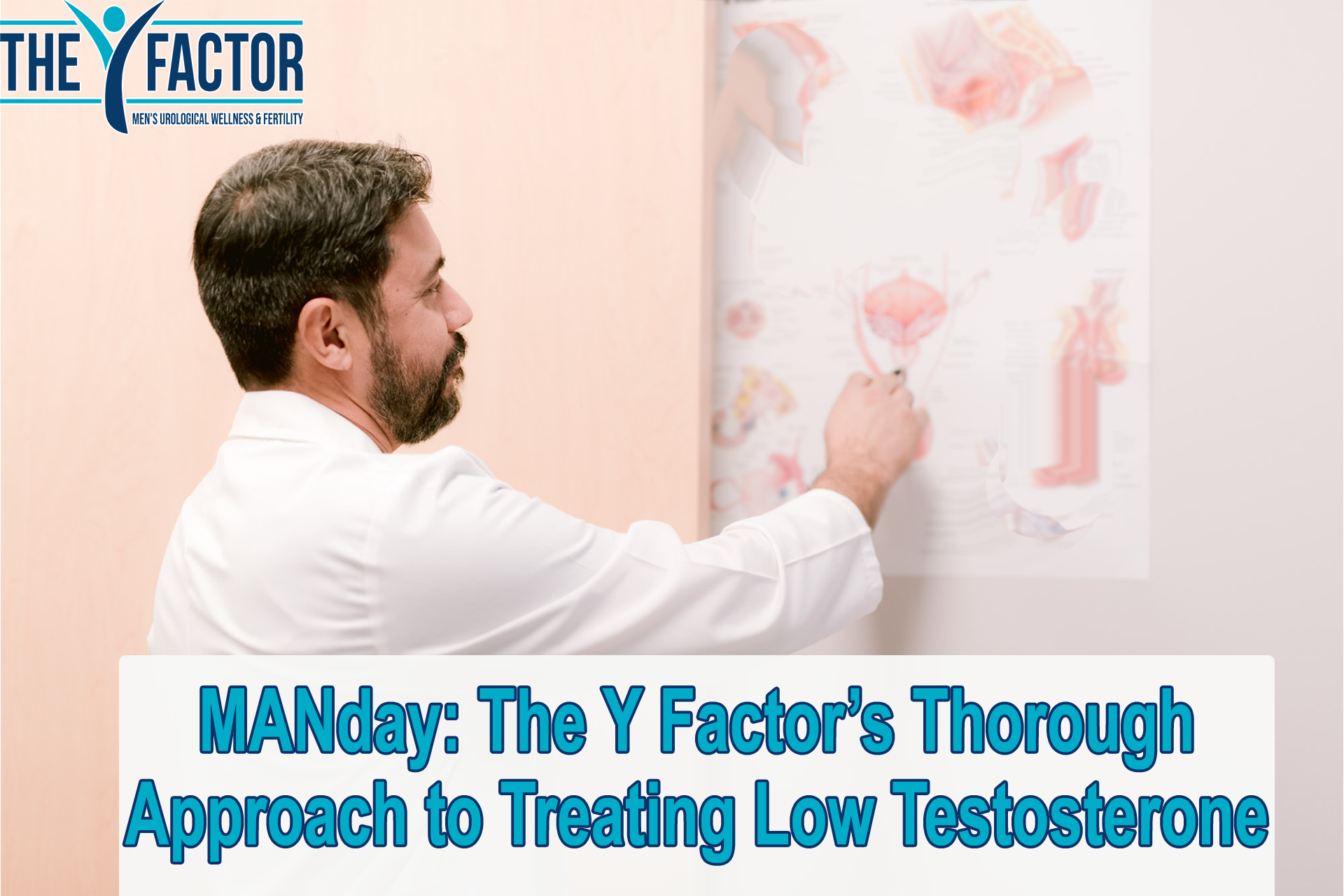
Deciding how to treat low testosterone levels
Deciding how to treat patients with low testosterone levels is a complex process that is dependent on many factors. Treatment can, in some cases, be simple and routine for a very few subsets of men but treating all men as if they belong to the same group may lead to negative and sometimes permanent outcomes for some. Before starting any treatment careful consideration of all factors must be well-thought-out and discussed. Some of these factors may include the patient’s short term vs long term goals, underlying medical conditions, prior surgeries or injuries, previous or current medications, age, weight, fertility needs, etc.
There are two main subsets of men that must be differentiated when treating for low-t – those desiring fertility vs those no longer concerned about fertility. Within these two main groups there are multiple subgroups. Examples of subgroups include men with primary testicular dysfunction vs those whose testicles are functional but are not receiving instruction to produce. And within these groups there are many other subgroups. Basically, in order to select the best treatment regimen for each individual, all of the above must first be properly determined.
Unlike other clinics who tend to group most men into the same category and on most occasions only provide synthetic testosterone replacement, here at The Y Factor we take the time to educate you on the different factors that must be considered so that we can select the best course of treatment for you. And for those patients that are already familiar with their medical history and treatment options, we streamline the process and get you started on a safe treatment regimen that meets your goals.
Treatment options at The Y Factor
Here at The Y Factor there are multiple options available for treating low-t. In addition to synthetic testosterone replacement therapy (TRT) we also offer testosterone enhancement treatment (TET) options. The difference between TRT and TET is that TRT is not your own natural testosterone. It is made in the lab and introduced into your body. Once in circulation, your body’s control center will notice high levels of testosterone and it will start shutting down your own natural testicular function. This leads to lower levels of your own natural testosterone and lower sperm production that can lead to infertility. And because the testicles stop working, they will gradually decrease in size over time. For a few subsets of men TRT is an excellent treatment option. But it is the exact opposite treatment option for those that want to preserve or improve their own testicular function. Testosterone enhancement treatment on the other hand stimulates and enhances your own natural production of testosterone.
Testosterone enhancement therapy (TET) can consist of a combination of different treatment methods. The treatment(s) we select for an individual are dependent on individual underlying conditions and goals. Some of these conditions include pituitary dysfunction, testicular dysfunction, vitamin deficiencies, sleep apnea, scrotal disorders such as varicoceles, and other chronic conditions such as diabetes, obesity, thyroid dysfunction, genetic abnormalities, etc.
Deciding on the correct treatment method
Once the patient’s goals are understood and he has properly been evaluated, appropriate treatment options are considered. He is educated on all of his treatment options including possible side effects, expected outcomes, possible adjunct treatments, and monitoring parameters. Shared decision making is taken into consideration in order to select the best course of treatment for his individual goals. All treatment options at The Y Factor are provided with careful thought and with the view of avoiding additional health problems like prostate disease, bone disease, testicular dysfunction, or risk of heart attack or stroke. Monitoring protocols are put in place to help capture and prevent additional health problems associated with TRT, TET, and adjunct treatments. For example, bone health is tightly tied to hormone balance – we not only need good T levels but also correct testosterone/estrogen (T/E) ratios to prevent bone loss. Some medications that are used to create good T/E hormone balance can actually cause silent bone disease. Estrogen blockers, for example, when not dosed correctly or if improperly monitored, can lead to a significant adverse reaction that increases the risk for osteoporosis and bone fracture. Here at The Y Factor we are aware of the many possible side effects cause by improper treatment regimens or poor monitoring and we take steps to safe guard our patients from them.
Why men choose The Y Factor
Some of our patients come to us from outside clinics to get safe and appropriate care that is tailored for their specific goals. Most of these men have experience being on different treatment methods and in some cases, they experienced negative side effects or quite simply their goals were not met. Many of our other patients are new to any and all form of low-t treatment and they choose us after conducting thorough research and determining we are the best option for their overall health and well-being. If you are new to low-t and suspect it may be an issue for you, or if you have prior experience with treatments for low-t from an outside clinic but want to learn more about us, stop by TYF and we will get you started on a path to better health.
References:
Eastell R, Adams JE, Coleman RE, et al. Effect of anastrozole on bone mineral density: 5-year results from the anastrozole, tamoxifen, alone or in combination trial 18233230. J Clin Oncol. 2008;26(7):1051-1057. doi: 10.1200/JCO.2007.11.0726 [PubMed 18309940]
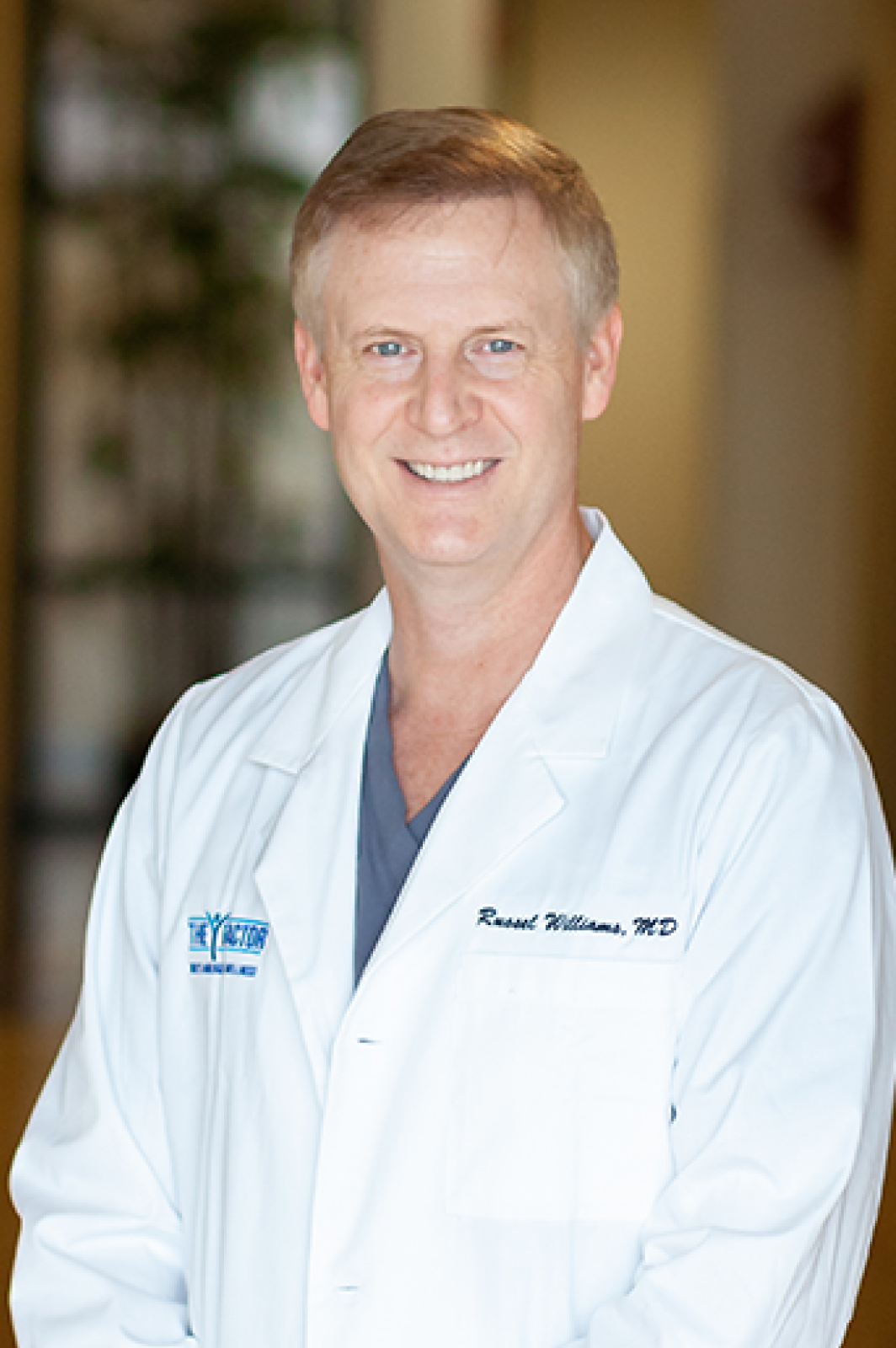
Select Your Men's Health Specialist, Book Instantly
Find expert urologists and men's health professionals who understand your unique needs.
Our streamlined platform helps you connect quickly and confidentially.
Personalized Treatment Plans
Receive tailored recommendations and therapies specifically designed to address your individual health needs.
Ongoing Support & Follow-up
Benefit from continuous care, including regular progress reviews and expert guidance throughout your wellness journey.

